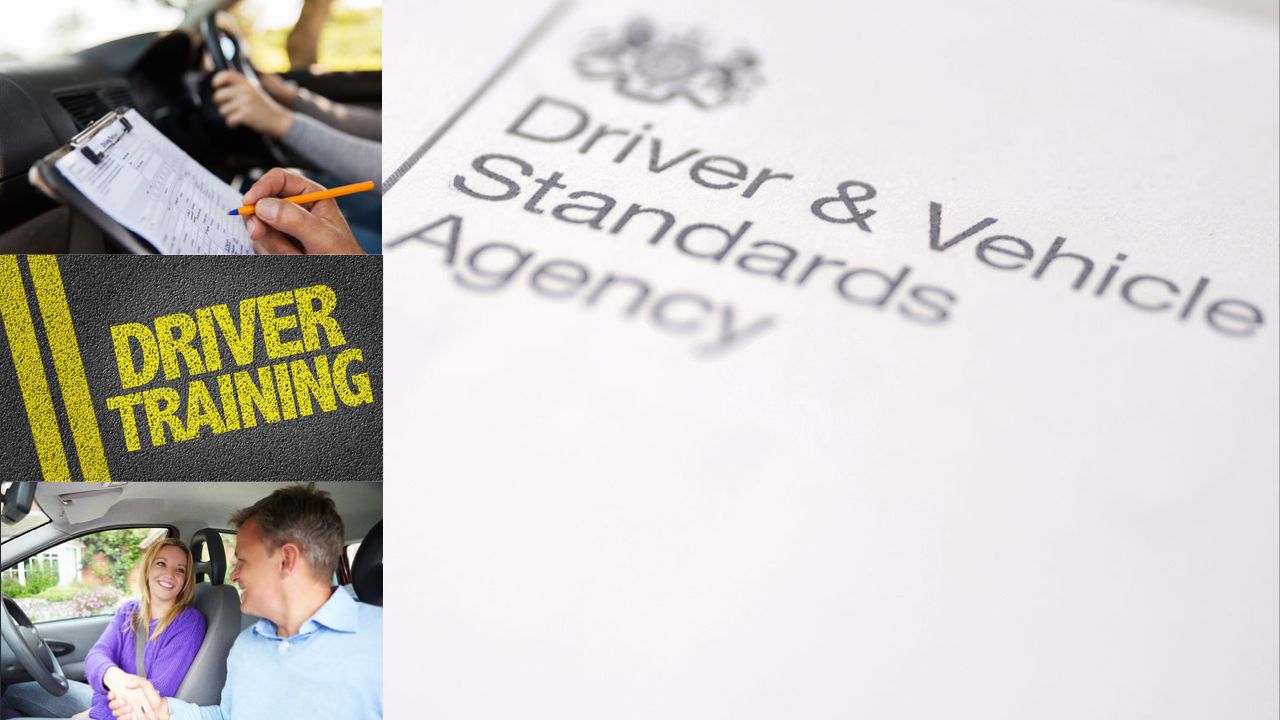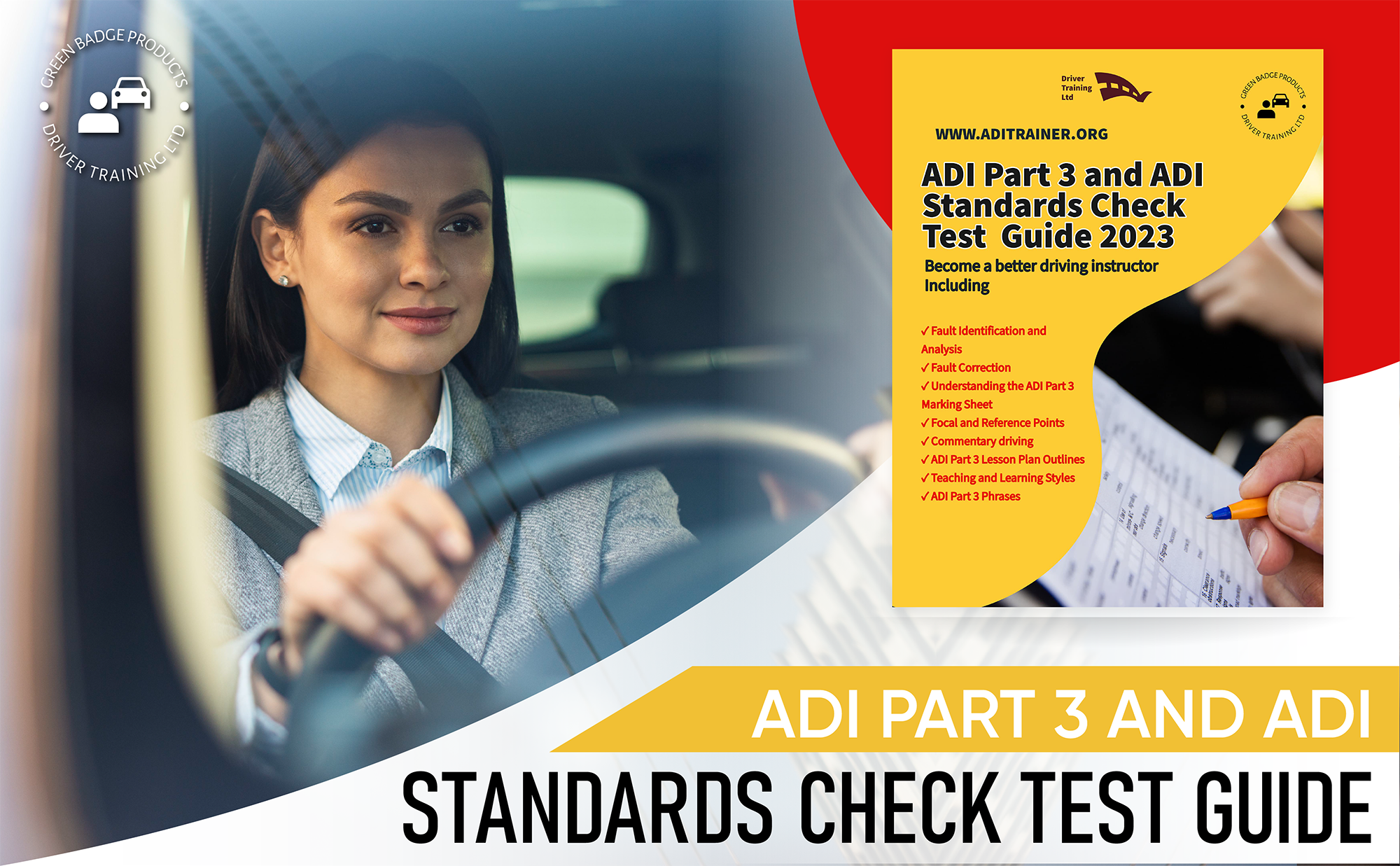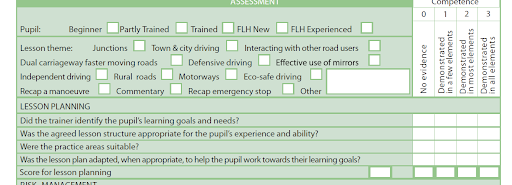Understanding The ADI Standards check test sheet
ADI Standards Check Marking Sheet
Understanding The ADI Standards check test sheet is one of the main factors in passing the ADI Standards Check.
Once you understand the structore of the check test and what the examiner is looking for you, it makes it easier for you to create and practice lessons in advance of your ADI standards check
So that on the day, the things that you need to do and the way you deliver a lesson comes as second nature and you're not worrying about what you need to do

ADI Standards Check Marking Sheet Explained
The ADI Standards Check Test Marking Sheet is basically split into 3 sections
FIRST - LESSON PLANNING
DID THE TRAINER IDENTIFY THE PUPIL'S LEARNING GOALS AND NEEDS?
Simply put, is this lesson something that the pupil actually needs to work on and practice? Or, is this just a lesson that you feel comfortable in teaching?
Have you decided todays lesson is on dual carriageways - but on approach to roundabouts, the pupil keeps asking is that left lane or right?
So therefore the lesson today should have been on choosing the correct lane on approach to roundabouts.
You need to show you can adapt your lesson plan, where appropriate, to help your pupil work towards their learning goals.
You shouldn’t stick to a planned lesson because the needs of your pupil might change throughout the lesson and it’s important you can adapt to that.
ADI Standards Check Test Sheet Explained
Our ADI Standards Check book helps you understand the ADI standards check marking sheet.
Includes Detailed Instruction - Unlike other ADI Standards Check Test Guides, ours provides a simple but comprehensive explanation of the check test marking sheet
Including understanding risk management, Understanding the marking sheet, how to identify, analyse and remedy driving faults, the use of questions.
GET YOURS FROM OUR STORES

Lesson Planning
Risk Management
Teaching and Learning
ADI Standards Check - Risk Management
Risk management
Another area instructors commonly fail on is not giving pupils enough feedback on any potentially dangerous situations.
As well as providing your pupil with timely and appropriate feedback, it’s important that if they make any serious or dangerous faults they know what they’ve done and why it’s dangerous.
The risk management is so important that all the other competencies on the marking sheet equals 35 points - with 31 being a pass
Yet if you get 7 or less on this section, its an automatic fail!
It’s up to you to make sure they understand this, so they don’t make the same mistake again.


Standards Check Marking Sheet - Teaching and Learning Strategies
Teaching and learning strategies
You need to be able to show you can teach your pupil in a style that’s suited for them. This means using methods that work best for them.
For example, when giving verbal directions, your pupil might find it easier if you referred to left and right as ‘my side’ or ‘your side’.
It’s important you give your pupil appropriate and timely feedback rather than giving it all at the end of the lesson.
Having regular discussions throughout the lesson helps your pupil understand what they might have done wrong.
You should encourage your pupil to analyse problems and take responsibility for their own learning.
For example, if your pupil forgot to check their blind spot before pulling out, you might:
- ask them if they know what they did wrong
- explain why they need to make sure they check their blind spots next time
